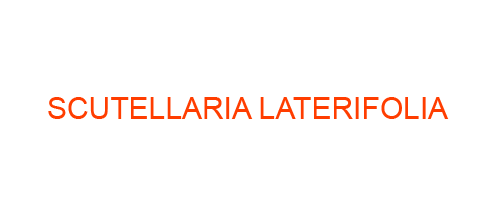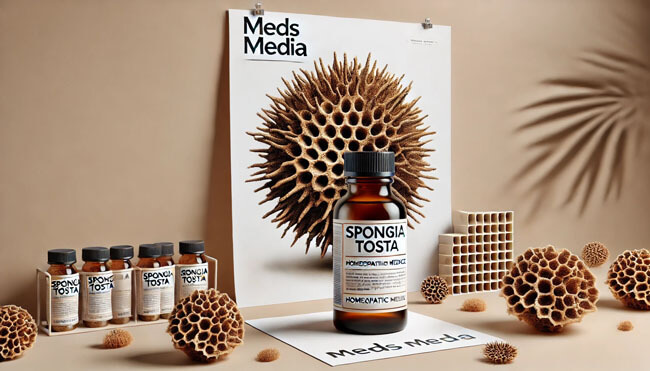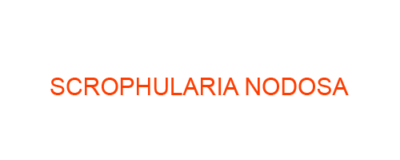
Scutellaria laterifolia, commonly known as Skullcap, is a medicinal herb used in homeopathy. It is primarily known for its calming and sedative properties, making it a popular remedy for anxiety, insomnia, and nervous disorders.
Properties and Preparation:
Scutellaria laterifolia belongs to the Labiatae family and is native to North America.
The plant is typically harvested when it is in full bloom, and the aerial parts, including the leaves and stems, are used for medicinal purposes.
The preparation involves making a tincture using a mixture of the fresh plant material and a suitable solvent, such as alcohol or glycerin. This tincture is then potentized according to homeopathic principles.
Symptoms treatment and materia medica:
Anxiety: Skullcap is commonly used for various anxiety disorders, characterized by excessive worry, restlessness, and a feeling of unease.
Insomnia: It helps in cases of sleeplessness, especially when associated with a racing mind or nervousness.
Nervousness: Skullcap is beneficial for individuals who experience excessive nervousness or nervous exhaustion.
Panic Attacks: It may alleviate symptoms of panic attacks, such as palpitations, shortness of breath, and a sense of impending doom.
Restlessness: It can help in cases of restless behavior, fidgeting, and an inability to sit still.
Tremors: Skullcap may be beneficial for individuals experiencing trembling or tremors, particularly when related to nervousness or anxiety.
Headaches: It can be used for headaches caused by mental exhaustion or stress.
Neuralgia: Skullcap may help reduce the intensity and frequency of nerve pain or neuralgic symptoms.
Muscle Twitching: It is indicated for muscle twitching or spasms associated with nervousness or anxiety.
Hypochondriasis: Skullcap can be beneficial for individuals with a tendency to be excessively concerned about their health or exhibit hypochondriacal behavior.
Menstrual Disorders: It is sometimes used for menstrual irregularities, especially when anxiety or nervousness accompanies the symptoms.
Epilepsy: Skullcap may help reduce the frequency and severity of seizures in some cases of epilepsy.
Vertigo: It can alleviate dizziness or a spinning sensation, particularly when related to anxiety or nervousness.
Stuttering: Skullcap may be used to assist individuals experiencing speech difficulties or stuttering caused by anxiety or nervousness.
Post-Traumatic Stress Disorder (PTSD): It is sometimes recommended as part of a holistic approach to managing symptoms of PTSD, including anxiety, insomnia, and restlessness.
FAQs (Frequently Asked Questions):
Q: Is Scutellaria laterifolia safe to use?
A: When used appropriately and under the guidance of a qualified homeopathic practitioner, it is generally considered safe. However, it is always recommended to consult with a healthcare professional before starting any new treatment.
Q: Can Skullcap be used for children?
A: Yes, it can be used for children, but it should be done under the guidance of a homeopathic practitioner experienced in treating pediatric cases.
Q: How long does it take to see results with Skullcap?
A: The response to any homeopathic remedy varies from person to person. Some individuals may experience improvement in symptoms relatively quickly, while others may require a more prolonged treatment period.
Q: Are there any known side effects?
A: Adverse effects are rare with homeopathic preparations of Scutellaria laterifolia when used in appropriate doses. However, it’s always advisable to follow the recommended dosage and consult with a healthcare professional if you have any concerns.
Q: Can Skullcap be taken alongside other medications?
A: It is generally safe to use alongside conventional medications. However, it’s important to inform your healthcare provider about all the medications you are taking to ensure there are no potential interactions.
Q: Can pregnant or breastfeeding women use Skullcap?
A: It’s recommended to consult with a healthcare professional before using Skullcap during pregnancy or breastfeeding, as there is limited information available regarding its safety in these situations.
Q: Can I self-prescribe Skullcap for my symptoms?
A: While some over-the-counter preparations of Skullcap may be available, it’s generally recommended to consult with a qualified homeopathic practitioner who can assess your symptoms and provide an individualized treatment plan.
Books References:
“Materia Medica of New Homoeopathic Remedies” by William Boericke
“A Dictionary of Practical Materia Medica” by John Henry Clarke
“The Complete Homeopathy Handbook” by Miranda Castro
“A Clinical Repertory to the Dictionary of Materia Medica” by John Henry Clarke
“Homeopathic Remedy Pictures: Study Aid for Materia Medica” by Alexander Gothe and Julia Drinnenberg
Please note that the information provided here is for informational purposes only and should not replace professional medical advice. It is always recommended to consult qualified homeopathic doctors for proper diagnosis, guidance, and individualized effective homeopathy treatment.
Why Meds Media guides are different
We focus on clear, practical explanations of homeopathic and natural health topics so you can understand remedies, symptoms, and lifestyle changes in simple language.
Meds Media is an educational resource only. Always consult a qualified doctor or homeopathic practitioner before starting, stopping, or changing any treatment.
Similar Posts You may also like
Zincum Picricum Homeopathic Medicine & Personality | Uses, Benefits & Indications
Zincum Phosphoricum Homeopathic Medicine & Personality | Uses, Benefits & Indications
Zincum Iodatum Homeopathic Medicine & Personality | Uses, Benefits & Indications
Zincum Bromatum Homeopathic Medicine & Personality | Uses, Benefits & Indications
Zea Homeopathic Medicine & Personality | Uses, Benefits & Indications
Zincum Aceticum Homeopathic Medicine & Personality | Uses, Benefits & Indications
Zincum Cyanatum Homeopathic Medicine & Personality | Uses, Benefits & Indications
Zincum Muriaticum Homeopathic Medicine & Personality | Uses, Benefits & Indications
Zincum Oxydatum Homeopathic Medicine & Personality | Uses, Benefits & Indications
Zincum Sulphuricum Homeopathic Medicine & Personality | Uses, Benefits & Indications

Phosphorus Homeopathic Medicine & Personality | Uses, Benefits & Indications
Causticum Homeopathic Medicine & Personality | Uses, Benefits & Indications

Top Global Homeopathic Medicine Manufacturers

Top renowned Homeopathic research institutes worldwide

Veratrum Viride Homeopathic Medicine & Personality | Uses, Benefits & Indications

Spongia Tosta Homeopathic Medicine & Personality | Uses, Benefits & Indications

Zingiber Officinale Homeopathic Medicine & Personality | Uses, Benefits & Indications


